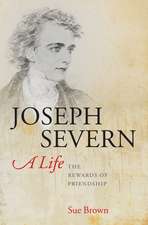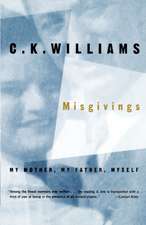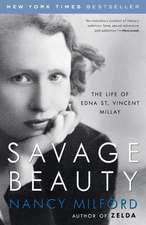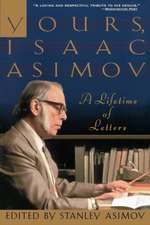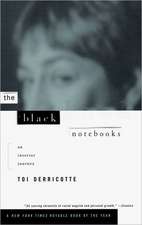George, Being George: George Plimpton's Life as Told, Admired, Deplored, and Envied by 200 Friends, Relatives, Lovers, Acquaintances, Rivals
Editat de Nelson W. Jr. Aldrichen Limba Engleză Paperback – 30 sep 2009
Norman Mailer said that George Plimpton was the best-loved man in New York. This book is the party that was George’s life–and it’s a big one–attended by scores of famous people, as well as lesser-known intimates and acquaintances. They talk about his life: its privileged beginnings, its wild and triumphant middle, its brave, sad end. They say that George was a man of many parts: the “last gentleman,” founder and first editor of The Paris Review, the graceful writer who brought the New Journalism to sports, and Everyman’s proxy boxer, trapeze artist, stand-up comic, Western movie villain, and Playboy centerfold photographer.
George’s last years were awesome, truly so. His greatest gift was to be a blessing to others–not all, truth be told–and that gift ended only with his death. But his parties, if this is one, need never end at all.
Preț: 125.54 lei
Nou
Puncte Express: 188
Preț estimativ în valută:
24.02€ • 25.08$ • 19.84£
24.02€ • 25.08$ • 19.84£
Carte disponibilă
Livrare economică 25 martie-08 aprilie
Preluare comenzi: 021 569.72.76
Specificații
ISBN-13: 9780812974188
ISBN-10: 0812974182
Pagini: 422
Ilustrații: B/W PHOTOS THROUGHOUT
Dimensiuni: 127 x 210 x 25 mm
Greutate: 0.31 kg
Editura: Random House Trade
ISBN-10: 0812974182
Pagini: 422
Ilustrații: B/W PHOTOS THROUGHOUT
Dimensiuni: 127 x 210 x 25 mm
Greutate: 0.31 kg
Editura: Random House Trade
Notă biografică
Nelson W. Aldrich, Jr. is a freelance writer and editor. Formerly Paris editor of The Paris Review, a senior editor at Harper’s Magazine, and a reporter for The Boston Globe, he is a frequent contributor to such publications as The Atlantic, Harper’s, The Nation, New England Monthly, and Vogue. He is the author of George, Being George.
Extras
George's Storied Background
George talked about his family background endlessly. The whole family, his mother especially, had an extraordinary knowledge of the glories of their past generations. As his wife, I heard all the stories many times. One story George loved was “Pull up your bowels, sir!” which is what General Adelbert Ames, “the Boy General,” used to say when reviewing the men of the 20th Maine. It was George’s way of saying, “Get a grip!” —SARAH DUDLEY PLIMPTON
SARAH GAY PLIMPTON Our mother may have looked down on Daddy a bit. It wasn’t his fault, of course, but Daddy wasn’t an Ames.
TIMOTHY DICKINSON It is something to be an Ames in New England. The Ameses have been around, making themselves felt, for a substantial time in that part of the world. But the fact that the two prominent Ames families in George’s family tree were called the “Maine Ameses,” for their non- Boston origins, and the “shovel Ameses,” for the homely origins of their wealth . . . well, that tells you something about their position in the New England hierarchy. It’s not like being a Winthrop, a Cabot, a Forbes, a Lowell, a Saltonstall, or a Lawrence—to be one of the families whom one is never surprised, no matter how questionable their manners, to see in the Somerset Club. I guess George embraced that New England identity, with the Ameses carrying the Plimptons—socially, so to speak. But it was, as I say, not that final New England eminence, which features no more than a dozen families.
PHOEBE LEGERE I don’t know how George and I got into a discussion about genealogy—at Elaine’s!—but we were talking about how both of our mothers are in the Mayflower Society. At Society meetings, you know, they read off the names of the Mayflower passengers, and when the name of your ancestor comes up, you stand. So I asked George, “From whom are you descended?” He said, “I don’t know, but my mother stands up five or six times.” I just loved that.
OAKES PLIMPTON Adelbert Ames, our great- grandfather, was the hero in our family tree. He was the youngest general in the Civil War, a Medal of Honor winner, and the officer who trained and commanded the 20th Maine at Gettysburg, in fact throughout the war. Afterwards, under Reconstruction, in the South, he became governor, then senator, then governor again of Mississippi. He married Blanche Butler during this time, a daughter of another famous general, Benjamin Butler, who was a Radical Republican congressman from Lowell, Massachusetts. Adelbert and Blanche Ames had a daughter—also named Blanche—and she married a shovel Ames, Oakes Ames. Grandfather was a serious Harvard professor of botany who was the son and nephew of Oliver and Oakes Ames of the Credit Mobilier scandal. Grandma and Grandpa Ames lived in Boston and in North Easton, Massachusetts, where they built this big stone house on the shovel Ames family estate, near the factory. They had four children, one of them our mother, Pauline, who married our father, Francis T. P. Plimpton, and they had four children: George, “T.P.,” me, and Sarah, in that order.
JOAN AMES I never knew our great- grandmother Blanche Butler, Adelbert’s wife, but she must have been a remarkable woman. She and Adelbert wrote hundreds of wonderful letters to each other. Before their wedding, she warned him, “I have not the least intention of making that promise,” meaning the vow of obedience. In another letter to Adelbert, who’s in Mississippi now, she recounts her adventure of going swimming “boy fashion” with her sister Kate one night at the Butler summer place on Cape Ann. It’s beautifully written, seductive really, and Adelbert writes back that he took a night swim in the Gulf of Mexico a few weeks later, so as to share in her experience.
OAKES PLIMPTON Adelbert Ames came from Rockland, Maine, from a family that wasn’t so fancy as the shovel Ameses or so rich as the Butlers. As a great champion of black civil rights in the South he failed, for sure, but only when the establishment Republicans up in Washington, many of them hot abolitionists before the war, deserted the cause in the 1870s. That’s when the North began turning against Radical Republicans like Adelbert and Butler, picking up the South’s curse word for them, “carpetbaggers.” You can find the same sneer, directed at Adelbert, in Kennedy’s Profiles in Courage, published in the late 1950s. In the South, Adelbert was so hated that Jesse James and his gang of bank robbers, all ex- Confederates, rode all the way up to Northfield, Minnesota, where they heard he was visiting, in hopes of killing him. They didn’t get him, of course. He lived to be ninety- seven—the oldest surviving Union officer—and George actually met him. He was only six, but he always liked to say, “I’ve looked into the eyes of the man who saw Pickett’s Charge at Gettysburg.”
SARAH DUDLEY PLIMPTON George told me they’d met in the garden. George was terrified of him, he was so very old and so severe. His great- grandfather leaned over and picked up a stick and fiercely snapped it in two and said, “Life ends like that, boy.” WILLIAM BECKER I remember one time in the early 1960s when George and I visited his grandmother Blanche in North Easton. She was an extraordinary woman. According to George, she became incensed at JFK’s characterization of her father, General Ames, as a carpetbagger and wrote letter after letter to the president, demanding that he rectify the calumny in subsequent editions. Finally she asked George to intercede with Kennedy, who he knew, of course. As George told the story, JFK approached him at a White House party begging him to persuade his grandmother to stop writing these scolding letters. George said he told the president that it might be easier to remove the slander. JFK said he would but in fact did not. Whereupon, at age eighty or so, Blanche Ames commenced writing a massive biography of her father. I have it, and it’s quite good.
OAKES PLIMPTON Grandmother Ames was a lot of fun and figured out all these projects. She thought of this whole idea of a composting toilet and actually got patents for it. She prospected for oil on the Butler ranch in New Mexico; the company was called the Praying Mantis because that’s what the oil rigs reminded her of. Unfortunately, they never struck oil. She was a suffragist and was also one of the people who started the Birth Control League in the 1930s; I think she even invented a contraceptive device. When some people began talking about eugenics, she quit. She was also an artist. She painted these incredible, lovely paintings of her husband’s orchid collection; and she did landscapes and portraits. One drawing that this curator woman found was of a woman on the cross. Her feminism was one of those generational things. My mother was not a feminist.
JOAN AMES Some part of George’s income (and mine, for that matter) surely came from trust funds established by our great- greatgrandfather Butler. Some came from the shovel Ameses, too, but Butler made lots of money as a lawyer after the Civil War. He was a social and political upstart in Massachusetts—most definitely not a Brahmin—and his wealth didn’t stop him from winning the governorship of Massachusetts on the slogan “A friend of the working man.” Which I believe he was: As governor, he appointed the first Irishman and the first African American to judgeships. There is a strong streak of unconventionality in the Butler line of our family.
ROWAN GAITHER Butler is most famous, I suppose, for that infamous order which he promulgated as military governor of New Orleans. George kept a framed copy of it on his kitchen wall. It said that any woman who disrespected a Union soldier would be assumed to be a lady of the evening and treated as such. George also loved the story that Butler had been asked by Lincoln to be his vice president and that Butler had said, “I will agree to do so only if you promise to die.” So the job went to someone else. OAKES PLIMPTON George didn’t talk as much about the Plimptons. By an amazing coincidence, they came from a village in Walpole, just a few miles from the Ameses in North Easton. But our Plimpton grandfather, George Arthur Plimpton, decided he could do better in New York City. And he did, which is how come our father came to be born there—his mother died giving birth to him—and eventually settled there with Mother. Grandfather Plimpton was president of Ginn and Company, the textbook publishers, and a trustee of everything from the New York Philharmonic to Barnard and Exeter and Amherst. Amherst and Exeter, in fact, were sort of Plimpton family schools. Smith, too: Mother went there, and so did Sarah. Our grandfather and father and uncle [Calvin Plimpton, Francis’s much younger half- brother, a doctor and college president] and my brother T.P. went to both of them. I went to Am herst, but Milton before that. George went to Exeter but then to Harvard. Daddy went to Harvard, too, to the law school. So did I, actually. Anyway, our father wasn’t as “family proud” as our mother was, but Grandfather Plimpton was a good man. He collected stuff, old books and portraits of great writers, and cigar store Indians, and he gave Exeter some playing fields and Barnard a dormitory and God knows what else to other institutions.
SARAH GAY PLIMPTON Mother kept scrapbooks of all our doings, everything that got into print, from school yearbooks to the newspapers. Actually, I started it. When I was young and worshipful, I started a scrapbook with George’s writings and achievements in it, but then Mother took it over. Naturally, George’s scrapbooks grew hugely fatter than ours. I think the scrapbooks were an extension of her family pride. She also wrote books about, or compiled speeches and articles by, Benjamin Butler, her father- in- law, and our father. George wrote introductions for all of them, of course. And she wasn’t shy about getting friends and strangers to buy them. George was like her in promoting The Paris Review.
George talked about his family background endlessly. The whole family, his mother especially, had an extraordinary knowledge of the glories of their past generations. As his wife, I heard all the stories many times. One story George loved was “Pull up your bowels, sir!” which is what General Adelbert Ames, “the Boy General,” used to say when reviewing the men of the 20th Maine. It was George’s way of saying, “Get a grip!” —SARAH DUDLEY PLIMPTON
SARAH GAY PLIMPTON Our mother may have looked down on Daddy a bit. It wasn’t his fault, of course, but Daddy wasn’t an Ames.
TIMOTHY DICKINSON It is something to be an Ames in New England. The Ameses have been around, making themselves felt, for a substantial time in that part of the world. But the fact that the two prominent Ames families in George’s family tree were called the “Maine Ameses,” for their non- Boston origins, and the “shovel Ameses,” for the homely origins of their wealth . . . well, that tells you something about their position in the New England hierarchy. It’s not like being a Winthrop, a Cabot, a Forbes, a Lowell, a Saltonstall, or a Lawrence—to be one of the families whom one is never surprised, no matter how questionable their manners, to see in the Somerset Club. I guess George embraced that New England identity, with the Ameses carrying the Plimptons—socially, so to speak. But it was, as I say, not that final New England eminence, which features no more than a dozen families.
PHOEBE LEGERE I don’t know how George and I got into a discussion about genealogy—at Elaine’s!—but we were talking about how both of our mothers are in the Mayflower Society. At Society meetings, you know, they read off the names of the Mayflower passengers, and when the name of your ancestor comes up, you stand. So I asked George, “From whom are you descended?” He said, “I don’t know, but my mother stands up five or six times.” I just loved that.
OAKES PLIMPTON Adelbert Ames, our great- grandfather, was the hero in our family tree. He was the youngest general in the Civil War, a Medal of Honor winner, and the officer who trained and commanded the 20th Maine at Gettysburg, in fact throughout the war. Afterwards, under Reconstruction, in the South, he became governor, then senator, then governor again of Mississippi. He married Blanche Butler during this time, a daughter of another famous general, Benjamin Butler, who was a Radical Republican congressman from Lowell, Massachusetts. Adelbert and Blanche Ames had a daughter—also named Blanche—and she married a shovel Ames, Oakes Ames. Grandfather was a serious Harvard professor of botany who was the son and nephew of Oliver and Oakes Ames of the Credit Mobilier scandal. Grandma and Grandpa Ames lived in Boston and in North Easton, Massachusetts, where they built this big stone house on the shovel Ames family estate, near the factory. They had four children, one of them our mother, Pauline, who married our father, Francis T. P. Plimpton, and they had four children: George, “T.P.,” me, and Sarah, in that order.
JOAN AMES I never knew our great- grandmother Blanche Butler, Adelbert’s wife, but she must have been a remarkable woman. She and Adelbert wrote hundreds of wonderful letters to each other. Before their wedding, she warned him, “I have not the least intention of making that promise,” meaning the vow of obedience. In another letter to Adelbert, who’s in Mississippi now, she recounts her adventure of going swimming “boy fashion” with her sister Kate one night at the Butler summer place on Cape Ann. It’s beautifully written, seductive really, and Adelbert writes back that he took a night swim in the Gulf of Mexico a few weeks later, so as to share in her experience.
OAKES PLIMPTON Adelbert Ames came from Rockland, Maine, from a family that wasn’t so fancy as the shovel Ameses or so rich as the Butlers. As a great champion of black civil rights in the South he failed, for sure, but only when the establishment Republicans up in Washington, many of them hot abolitionists before the war, deserted the cause in the 1870s. That’s when the North began turning against Radical Republicans like Adelbert and Butler, picking up the South’s curse word for them, “carpetbaggers.” You can find the same sneer, directed at Adelbert, in Kennedy’s Profiles in Courage, published in the late 1950s. In the South, Adelbert was so hated that Jesse James and his gang of bank robbers, all ex- Confederates, rode all the way up to Northfield, Minnesota, where they heard he was visiting, in hopes of killing him. They didn’t get him, of course. He lived to be ninety- seven—the oldest surviving Union officer—and George actually met him. He was only six, but he always liked to say, “I’ve looked into the eyes of the man who saw Pickett’s Charge at Gettysburg.”
SARAH DUDLEY PLIMPTON George told me they’d met in the garden. George was terrified of him, he was so very old and so severe. His great- grandfather leaned over and picked up a stick and fiercely snapped it in two and said, “Life ends like that, boy.” WILLIAM BECKER I remember one time in the early 1960s when George and I visited his grandmother Blanche in North Easton. She was an extraordinary woman. According to George, she became incensed at JFK’s characterization of her father, General Ames, as a carpetbagger and wrote letter after letter to the president, demanding that he rectify the calumny in subsequent editions. Finally she asked George to intercede with Kennedy, who he knew, of course. As George told the story, JFK approached him at a White House party begging him to persuade his grandmother to stop writing these scolding letters. George said he told the president that it might be easier to remove the slander. JFK said he would but in fact did not. Whereupon, at age eighty or so, Blanche Ames commenced writing a massive biography of her father. I have it, and it’s quite good.
OAKES PLIMPTON Grandmother Ames was a lot of fun and figured out all these projects. She thought of this whole idea of a composting toilet and actually got patents for it. She prospected for oil on the Butler ranch in New Mexico; the company was called the Praying Mantis because that’s what the oil rigs reminded her of. Unfortunately, they never struck oil. She was a suffragist and was also one of the people who started the Birth Control League in the 1930s; I think she even invented a contraceptive device. When some people began talking about eugenics, she quit. She was also an artist. She painted these incredible, lovely paintings of her husband’s orchid collection; and she did landscapes and portraits. One drawing that this curator woman found was of a woman on the cross. Her feminism was one of those generational things. My mother was not a feminist.
JOAN AMES Some part of George’s income (and mine, for that matter) surely came from trust funds established by our great- greatgrandfather Butler. Some came from the shovel Ameses, too, but Butler made lots of money as a lawyer after the Civil War. He was a social and political upstart in Massachusetts—most definitely not a Brahmin—and his wealth didn’t stop him from winning the governorship of Massachusetts on the slogan “A friend of the working man.” Which I believe he was: As governor, he appointed the first Irishman and the first African American to judgeships. There is a strong streak of unconventionality in the Butler line of our family.
ROWAN GAITHER Butler is most famous, I suppose, for that infamous order which he promulgated as military governor of New Orleans. George kept a framed copy of it on his kitchen wall. It said that any woman who disrespected a Union soldier would be assumed to be a lady of the evening and treated as such. George also loved the story that Butler had been asked by Lincoln to be his vice president and that Butler had said, “I will agree to do so only if you promise to die.” So the job went to someone else. OAKES PLIMPTON George didn’t talk as much about the Plimptons. By an amazing coincidence, they came from a village in Walpole, just a few miles from the Ameses in North Easton. But our Plimpton grandfather, George Arthur Plimpton, decided he could do better in New York City. And he did, which is how come our father came to be born there—his mother died giving birth to him—and eventually settled there with Mother. Grandfather Plimpton was president of Ginn and Company, the textbook publishers, and a trustee of everything from the New York Philharmonic to Barnard and Exeter and Amherst. Amherst and Exeter, in fact, were sort of Plimpton family schools. Smith, too: Mother went there, and so did Sarah. Our grandfather and father and uncle [Calvin Plimpton, Francis’s much younger half- brother, a doctor and college president] and my brother T.P. went to both of them. I went to Am herst, but Milton before that. George went to Exeter but then to Harvard. Daddy went to Harvard, too, to the law school. So did I, actually. Anyway, our father wasn’t as “family proud” as our mother was, but Grandfather Plimpton was a good man. He collected stuff, old books and portraits of great writers, and cigar store Indians, and he gave Exeter some playing fields and Barnard a dormitory and God knows what else to other institutions.
SARAH GAY PLIMPTON Mother kept scrapbooks of all our doings, everything that got into print, from school yearbooks to the newspapers. Actually, I started it. When I was young and worshipful, I started a scrapbook with George’s writings and achievements in it, but then Mother took it over. Naturally, George’s scrapbooks grew hugely fatter than ours. I think the scrapbooks were an extension of her family pride. She also wrote books about, or compiled speeches and articles by, Benjamin Butler, her father- in- law, and our father. George wrote introductions for all of them, of course. And she wasn’t shy about getting friends and strangers to buy them. George was like her in promoting The Paris Review.
Recenzii
"This superb, exuberant oral biography of editor-author-actor Plimpton (1927—2003) is described by Aldrich as 'a kind of literary party, George's last.' When one scans any page at random in this appealing assemblage of anecdotes, it becomes difficult to stop reading. Plimpton's colorful personality emerges in a high-definition prismatic portrait."—Publisher's Weekly, starred review
"The variety and eminence of the voices contributing to this unique biography of Plimpton offer a very personal look at a journalist known for promoting a participatory style of reportage. The stories are revealing, humorous, and evocative of the exuberance of Plimpton himself and the company of writers in a fascinating era in American literature. Photographs and correspondence add to the sense of intimacy in this look at a beguiling figure."—Booklist
"Aldrich employs a rough though never rigid chronology throughout these reminiscences, which vary in length from a few sentences to a page or two. The impressive contributors list reads like a literati’s dream: among many others, Chris Cerf, Robert Gottlieb, Philip Gourevitch, Hugh Hefner, P.J. O’Rourke, William Styron, Gore Vidal and Edmund White. A largely admiring mosaic with some pieces that glisten and illuminate."—Kirkus
“Hugely entertaining . . . George is a character to be fondly remembered, a hero of sorts, and a charmed and charming partner in his own spirited dance to the music of time.”—New York Times Book Review
“Superb, exuberant . . . Plimpton’s colorful personality emerges in a high-definition prismatic portrait.”—Publishers Weekly, starred review
“Dazzling bits of mosaic . . . vivid recollections and lively anecdote.”—Boston Globe
“Compulsively readable.”—Newsweek
"The variety and eminence of the voices contributing to this unique biography of Plimpton offer a very personal look at a journalist known for promoting a participatory style of reportage. The stories are revealing, humorous, and evocative of the exuberance of Plimpton himself and the company of writers in a fascinating era in American literature. Photographs and correspondence add to the sense of intimacy in this look at a beguiling figure."—Booklist
"Aldrich employs a rough though never rigid chronology throughout these reminiscences, which vary in length from a few sentences to a page or two. The impressive contributors list reads like a literati’s dream: among many others, Chris Cerf, Robert Gottlieb, Philip Gourevitch, Hugh Hefner, P.J. O’Rourke, William Styron, Gore Vidal and Edmund White. A largely admiring mosaic with some pieces that glisten and illuminate."—Kirkus
“Hugely entertaining . . . George is a character to be fondly remembered, a hero of sorts, and a charmed and charming partner in his own spirited dance to the music of time.”—New York Times Book Review
“Superb, exuberant . . . Plimpton’s colorful personality emerges in a high-definition prismatic portrait.”—Publishers Weekly, starred review
“Dazzling bits of mosaic . . . vivid recollections and lively anecdote.”—Boston Globe
“Compulsively readable.”—Newsweek
Descriere
From literary icons like William Styron and Calvin Trillin to ex-wives and lifelong friends, no holds are barred in this unique, honest account of George Plimpton--contributed by the people who knew him best. b&w photos throughout.
